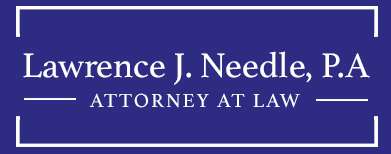In addition to the recent proclamation of April 22, 2020, in which immigrant visas were suspended abroad, subject to certain exceptions, the newest proclamation took effect on June 24, 2020, and will remain so in effect until December 31, 2020, at the earliest. Essentially, the June 20, 2020 proclamation suspends the entry of foreign nationals on certain employment-based nonimmigrant visas into the United States. The Proclamation suspends the issuance of visas for the following:
- H-1B and any foreign national accompanying or following to join;
- H-2B visas and any foreign national accompanying or following to join;
- Certain J-1 visas, to the extent that the foreign national is participating as an intern, trainee, teacher, camp counselor, au pair, or in a summer work program, as well as any foreign national wishing to follow or accompany them to join; and
- L visas, applying to intra-company managers, executives, and those with specialized knowledge and any foreign national accompanying them or following to join.
Notably, the proclamation applies to any and all outside of the United States as of June 24, 2020; who do not already have a valid non-immigrant visa in that particular visa category and currently living in the United States; and who do not have an official travel document other than a visa (such as an Advance Parole document) valid on the effective date of the proclamation, allowing such individual to enter the United States.
Note that there are certain exemptions to the proclamation: lawful permanent resident; spouse or child of U.S. citizen; any individual seeking to provide temporary labor essential to the U.S. food supply chain; and any individual whose entry would be in the national interest as determined by the Secretary of State, The Secretary of Homeland Security, or respective designees.
For purposes of determining who would qualify under the national interest exemption “the various Secretaries must determine standards for whom such an exemption would be available including any individuals critical to the defense or national security of the United States; involved with the provision of care of individuals who have contacted COVID-19; those involved with the provision of medical research at U.S. facilities to help the U.S. combat COVID-19; those deemed essential necessary to facilitate the immediate economic recovery of the U.S.; and any children who would otherwise age out for a visa because of the proclamation. Consular officers have the discretion to determine if an individual fits within one of the exempted categories described above.
The Proclamation lists certain other ominous warnings, including a provision for fraud for individuals who attempt to circumvent the application of the proclamation through willful misrepresentation or illegal entry into the United States. Similarly, the proclamation indicates that the Administration may issue regulations or take additional actions to ensure that those who have already been admitted or seeking admission for employment-based visas do not limit opportunities for U.S. workers. According to some, the Administration may actually impose that individuals seeking immigrant visas who have already been approved for labor certification be subject to the labor market test again even if they had been waiting many years for an immigrant visa. Also, the Administration will consider regulations or other actions concerning the allocation of visas to ensure the presence of H-1B professional or specialty workers in the U.S. will not negatively affect U.S. workers. This may include prioritizing the highest-paid H-1B workers in the numerical cap only. The Administration also vows to undertake investigations of purported labor condition application violations pursuant to the H-1B visa category. Further update s will be provided as clarification is issued with respect to the parameters of the Proclamation. In addition, litigation is expected to challenge the validity of this most recent Proclamation.
